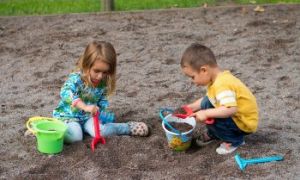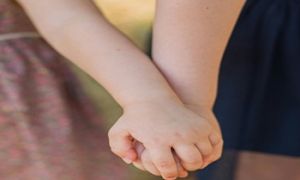Creative arts offer children - through dance, crafts, music, art or drama – some of the most enjoyable ways to express their ideas and imagination. Along along with providing opportunities for freewheeling thinking, creative pursuits bring many developmental and learning benefits as well.
Physical
As children grasp crayons, use scissors or mould clay into shapes, they use their fine motor skills and visual motor coordination. Through controlled finger movements, a child’s proprioceptive input, dexterity and tactility are enhanced besides helping them compare different materials. Dance and animated singing also help children to use their lungs, limbs and practice gross motor skills.
Sensory
Children make sense of their world by taking in information from their many senses. The more varied their sensory experiences, the higher connections made by the neural pathways in their brains which in turn strengthen cognitive thinking. Over time lessons acquired from sensory processing help the brain to register, organise and respond to sensory inputs in consistent and meaningful ways.
All this is vastly helped by creative activities like:
- painting and drawing to engage the visual sense,
- craft with different materials like beads, yarn, clay, string, fabric, cardboard, sponge as well as play with natural materials like sand, water, pebbles to engage the sense of touch
- music, singing and rhymes to engage the auditory sense
- baking, cooking and tasting sessions to engage the sense of taste
- gardening, composting, cooking and scented craft activities to engage the olfactory sense.
Cognitive
The benefits of creative activities do not stop at nurturing the imagination. Indeed all the processes involved in creative activities – starting from planning and organising to hypothesis-testing and problem solving – directly build cognitive skills. Whether through art, crafts or music, creative activities help children to think, make connections and work things out for themselves.
Social
Contrary to the romantic stereotype of the solitary artist, creative pursuits can in fact make for greatly enriching social experiences. As children work in groups to build a Jurassic age diorama, make music in a band or put up the end of term play, they get valuable opportunities to learn social skills like cooperation, sharing, turn taking, positive non-verbal behaviour and empathy. All such skills not only have the potential to determine school performance and peer interactions but to influence positive life outcomes in adulthood as well.
Emotional
Creative activities offer children opportunities for self-expression and healing which is especially important if they are going through challenging times. In fact Creative Arts Therapy is a form of expressive therapy art that uses music, drama, dance/movement, poetry/creative writing, bibliotherapy, play or sand play by trained professionals to help children feel better. At other times, being creative gives children the psychological space to try new experiences and activities and in turn build skills like patience, resilience and self-confidence.
References:
- Sensory Play: Only About Children
- Sensory Processing: Our Health Services
- The Art of Creating: Why Art is Important for Early Childhood Development: Michigan State University
- Creative Arts Therapy: My Mind


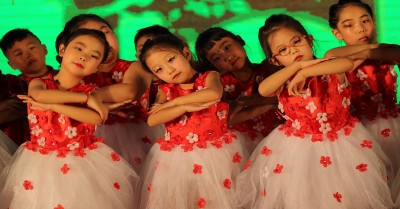
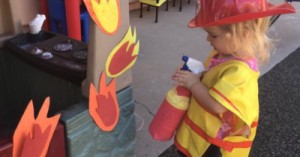
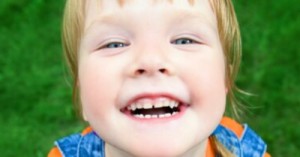


 Open ended questions cannot be responded to with one word answers such as yes or no. These types of questions enables a child to provide
Open ended questions cannot be responded to with one word answers such as yes or no. These types of questions enables a child to provide During your child’s preschool years, an important milestone begins to emerge. This is the development of pre-writing skills. Pre-writing skills are used to encourage, develop
During your child’s preschool years, an important milestone begins to emerge. This is the development of pre-writing skills. Pre-writing skills are used to encourage, develop Open ended materials enables children to play freely. They are objects that have no rules to follow, use or function. Raw materials that can be
Open ended materials enables children to play freely. They are objects that have no rules to follow, use or function. Raw materials that can be An Acknowledgment of the Country is a way of showing respect for the Traditional Owners and can be given by both non-Indigenous people and Aboriginal
An Acknowledgment of the Country is a way of showing respect for the Traditional Owners and can be given by both non-Indigenous people and Aboriginal Language plays an important role in a child’s development. It enables a child to communicate effectively with their family, learn at school, socialize with friends,
Language plays an important role in a child’s development. It enables a child to communicate effectively with their family, learn at school, socialize with friends, Like adults, children have to deal with their own stress in life. Moving house, starting a new school, preparing for a new sibling - these are
Like adults, children have to deal with their own stress in life. Moving house, starting a new school, preparing for a new sibling - these are Playdough is such a versatile material. It provides numerous benefits to children as they manipulate it, it is safe and soothing and provides children with
Playdough is such a versatile material. It provides numerous benefits to children as they manipulate it, it is safe and soothing and provides children with Teaching children about sustainability enables them to appreciate and respect the natural environment. Early childhood services can provide meaningful hand on learning experiences in order
Teaching children about sustainability enables them to appreciate and respect the natural environment. Early childhood services can provide meaningful hand on learning experiences in order Recycling is an important concept that teaches children to care for the environment. It encourages children to be responsible and show a growing appreciating for
Recycling is an important concept that teaches children to care for the environment. It encourages children to be responsible and show a growing appreciating for When children apply paint to paper, glue things together, or pound a lump of clay, they experiment with colour, shape design and texture.
When children apply paint to paper, glue things together, or pound a lump of clay, they experiment with colour, shape design and texture.
